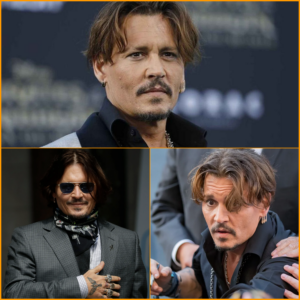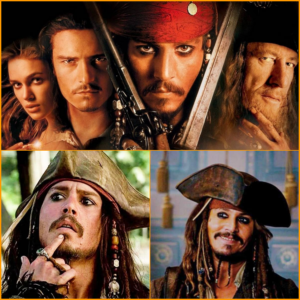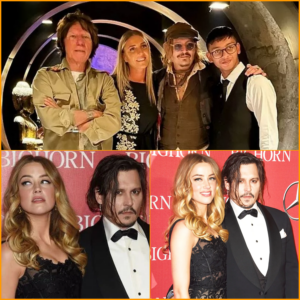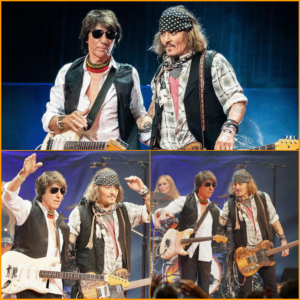Few screen performers of his generation – male or female – have produced such indelible work on the silver screen with as much dexterity or range.
Equally as good in more serious dramatic roles as he is playing the fool, a unique combination of melancholy and comic playfulness distinguishes many of his appearances on screen, giving Depp a rare, intangible quality alongside his chameleonic approach.

Johnny Dep in Cry Baby
What are Johnny Depp’s best films and performances?
Johnny Depp’s performances haven’t always matched the quality of the films he’s appeared in. Thus, he’s often the best thing about the movie.
The Pirates of the Caribbean sequels are good examples, as is Stephen King film adaptation Secret Window.
That means Depp’s best performances aren’t always to be found in his best films.
However, when we find a balance between the two, we’re often in for something special.
Indeed, Depp appeared in some of the most notable American films of the 1990s, many of which remain criminally overlooked.
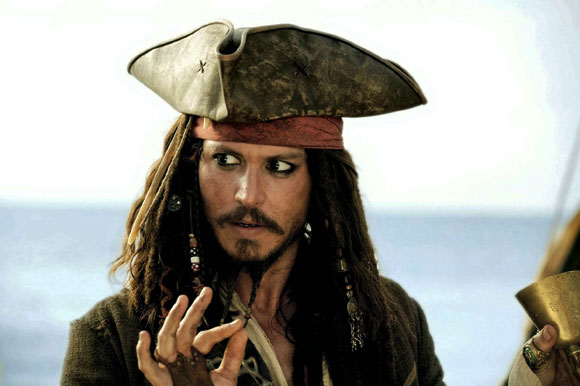
Johnny Depp in one of his most celebrated and commercially successful roles as Jack Sparrow in Pirates of the Caribbean.
A good indication of a “Johnny Depp” character that’s worth seeing accomplishes the very traits he always eager to explore.
He said in an interview the things he finds fascinating involved “an exploration of the outside, or the outsider, or what’s considered the outsider, or the underdog, or the damaged.”
10. Benny And Joon (1993)
Dir. Jeremiah S. Chechik (1993)

The first time Johnny Depp was able to showcase his comedic side, Jeremiah S. Chechik’s Benny and Joon is memorable because of the actor’s amusing recreation of the physical slapstick of famed silent era comic stars such as Charlie Chaplin, Buster Keaton and Harold Lloyd. He’s over-the-top but sincere, showcasing a winning charm and sense of innocence.
9. The Ninth Gate
Dir. Roman Polanski (1999)

An underrated – and for the most part, understated – horror film from director Roman Polanski sees Depp play Dean Corso, a New York City rare book dealer who sets out to authenticate a book supposedly written by – and able to raise – the Devil. Corso’s rather odious behaviour is offset by an understandable obsession to serve his curiosity.
8. Arizona Dream
Dir. Emir Kusturica (1993)

A curiously fascinating offbeat comedy-drama that fits perfectly with Depp’s off-kilter sensibilities, Arizona Dream sees the actor playing a fish counter who claims instead of counting them he’s listening to their dreams.
That gives a not-so-subtle introduction to the off-the-wall lunacy on offer in Emir Kusturica’s surreal film.
At this point in his career, Depp was clearly more interested in unique indie voices as Arizona Dream underlined, his early work with John Waters and Jim Jarmusch making a fitting triple bill that champions the actor’s blossoming talent.
7. Dead Man
Dir. Jim Jarmusch (1995)

Fittingly surreal and off-kilter, Jim Jarmusch’s Dead Man, which marks Johnny Depp’s first collaboration with the indie-auteur, sees the actor play William Blake, an accountant who ends up on the run after being accused of murder.
Described by its writer-director as a “psychedelic western”, Dead Man eschews typical genre conventions but finds itself sharing some of classic western’s existential musings amidst the seemingly unrestrained possibilities of the American frontier.
6. Sleepy Hollow
Dir. Tim Burton (1999)

Sleepy Hollow looks stunning; its gothic styling straight from a Grimm-inspired bad dream and dressed in muted blues and greys, a ghostly mist lingering only to add to the film’s gorgeous otherness. Depp is sceptic investigator Ichabod Crane, a man of science and steampunk gadgetry who is unwilling to believe the town’s superstitious fears.
When the Headless Horseman reveals himself, Crane’s hysterics in the face of a very real paranormal threat bring a comic levity to director Burton’s unsettling stage.
5. What’s Eating Gilbert Grape
Dir. Lasse Hallström (1993)

Memorable for Leonardo DiCaprio’s incredible performance, What’s Eating Gilbert Grape emotional centre emerges from the genuinely heartfelt performance of Depp.
Here he’s Gilbert, a working class grocery store clerk who’s got to make ends meet while caring for his obese mother and his disabled brother.
But an encounter with free-spirited Becky (Juliette Lewis) reveals a renewed zest for life that reveals the possibilities outside the constraints of small-town living and family commitments taking him on a journey of self-sacrifice and personal growth.
4. Donnie Brasco
Dir. Mike Newell (1997)

Depp embodies undercover FBI agent Donnie Brasco in this gangster drama based on the true story of Joseph D. Pistone who successfully infiltrated the New York mob and detailed his compelling story of mafia life in the book, Donnie Brasco: My Undercover Life in the Mafia.
Without the eccentricities, wardrobe and make-up touch-ups, or cartoonish sensibilities that had accompanied some of his other roles in the 1990s, this is Depp laid bare, discovering a steely courageousness in the face of unrelenting danger. He finds a fascinating fine line between confident swagger and fearful fragility.
3. Fear & Loathing In Las Vegas
Dir. Terry Gilliam (1998)

Depp goes full gonzo as a free-wheeling inebriated journalist who, under the influence of drugs, alcohol and a penchant for trouble, brings to the screen the stylised exploits of the real-life Hunter S. Thompson.
Director Terry Gilliam’s cartoonish approach is apt in conveying Thompson’s off-the-wall approach to an existence where his professional and personal life were inextricably linked – for better and for worse.
Depp’s affection for Thomson is writ large in his embodiment of the man’s manic paranoia and off-kilter unreality, an over-caffeinated comic energy that would inform numerous commercial hits in the 2000s and beyond including, most notably, Jack Sparrow in the Pirates of the Caribbean films.
2. Edward Scissorhands
Dir. Tim Burton (1990)

Edward Scissorhands marks Depp’s first collaboration with Tim Burton and the beginning of a particularly fruitful professional relationship.
Inspired by the tragi-figures Frankenstein and Pinocchio, the actor perfectly finds that sense of the tortured soul seeking a meaningful existence.
There aren’t many actors capable of finding such childlike innocence and credible poignancy behind the wild hair and oversized metallic “scissorhands”.
1. Ed Wood
Dir. Tim Burton (1994)

Tim Burton’s best film also features Johnny Depp’s most irresistibly charming turn as the “worst director of all time”.
The eponymous character’s unstoppable idealism is matched by a huge heart and cartoonish smile.
In spite of Wood’s affectations and eccentricities, Depp manages to find a winning pathos (helped by a wonderfully endearing relationship built with Martin Landau’s Bela Lugosi) amidst the most pitiable proclamations and ever-present Angora sweaters.
News
What you didn’t know about Johnny Depp’s guitar skills.
Beyond the silver screen and the allure of Hollywood’s glitz and glamor lies a lesser-known facet of Johnny Depp’s life – his profound passion for playing the…
The subtle clues Johnny Depp gave us about AH’s true nature
Times Johnny Depp Tried To Warn Us Johnny Depp is a man who has had a very interesting life in ways that are both funny, and sad….
The controversial poster of pirates of the Caribbean 6 starring Johnny Depp
There is a new Pirates of the Caribbean 6 poster that has gone viral online with a movie title listed as Pirates of the Caribbean: Demons of the Corsair. The…
Johnny Depp celebrates Amber Heard victory with £50K Indian banquet
‘Once in a lifetime moment’ at the Varanasi in Broad Street, Birmingham Hollywood star Johnny Depp was joined by his musician friend Jeff Beck, 77, and around…
Johnny Depp’s ‘favourite’ curry house Varanasi about to open in Leicester
Johnny Depp who is reported to have said ‘it was the best curry he’s ever had!’ Varanasi, a popular Indian restaurant is expanding from it Birmingham branch,…
How Johnny Depp and Rod Stewart showed their love for animals with a song
Johnny Depp and Sir Rod Stewart joined forces over the weekend to raise money for an animal charity based in Lewisham. The duo performed at a private charity…
End of content
No more pages to load

